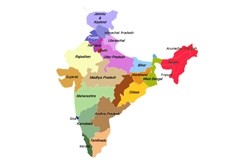Indians altering dietary habits, says Nielsen

According to the survey 77% of urban Indians are cutting down on fats to change their diet, while another 67% are cutting down on chocolates, sugar, and the likes to achieve the same effect.
About 62% of the respondents said that they are eating more natural and fresh foods to change their diet towards healthier living, while another 51% said that they are cutting down the amount of processed foods they consume.
The survey covered 500 Indian consumers online as part of larger global study that covered more than 25,000 consumers (with online access) in the Asia-Pacific, Europe, Latin America, West Asia, Africa and North America.
Mumbai-based nutritionist and dietician Mrinalini M. (first name only) told FoodNavigator-Asia that survey also reveals that Indians do have a better understanding of how healthy living works.
“The survey does reveal that 38% of Indians are following a low carb plan, which is indicative of them being aware of fitness trends. Another 79% indicated they preferred to exercise rather than change their food habits,” she said.
Mrinalini adds that these results are different to what is conventional thinking about Indians that they would rather diet than exercise. “Compared to western attitudes about exercise, Indians are far more laidback in practice. Though the survey results seem to point to the contrary.”
Taste first, health next
Interestingly, the survey revealed 46% of Indians are eating the same amount of processed and fresh foods, but in smaller portions. According to Mrinalini, this could mean that food processors need to alter their packaging.
The survey also revealed further insights into the Indian food consumption patterns, with results such as that 51% of them regularly buying whole grain, high-fibre products, while another 36% bought fruit juices with supplements.
Amongst the newest products on Indian shelves, yoghurts, soymilk, and drinks containing “good” bacteria appeal however saw limited appeal with Indian consumers ranging from 13% to 16% of approval.
“Like I have always maintained, Indians give priority to taste first, health next. These products have a long way in achieving the right taste profile for Indians and these numbers are pretty indicative of that,” she says.
Food labels are confusing
The survey found only 52% of Indians actually fully understood what the nutritional information labels on food packaging meant, while another 43% did so in part, but 11% had no idea about these labels at all.
Alarmingly, the survey also revealed that Indians were distrustful of nutrition claims made on labelling. For example, only 25% of Indians really believe organic claims to be accurate and just about 28% think that the real fruit claims in food products are truthful.
Much on the same lines, only 27% do consider the heart healthy claims on food products to be truthful and a meager 21% believe that companies really mean it when they say that their products have non-artificial ingredients.
“This is pretty much spot on. Indians are naturally distrustful of any such claims. And it has as much to do with our cultural outlook. We never believe lofty claims and want to see real proof in any aspect of life,” said Mrinalini.
She adds that to a lesser extend, many Indians may not be understanding of these claims because of a lack of education in this aspect and also a degree of ignorance to such matters.



















